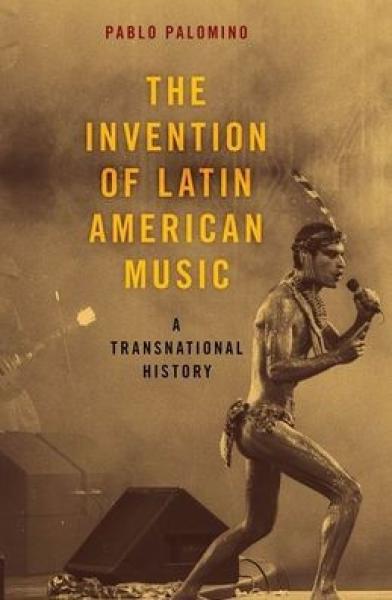Description
The ethnically and geographically heterogeneous countries that comprise Latin America have each produced music in unique styles and genres - but how and why have these disparate musical streams come to fall under the single category of Latin American music? Reconstructing how this category came to be, author Pablo Palomino tells the dynamic history of the modernization of musical practices in Latin America. He focuses on the intellectual, commercial, musicological, and diplomatic actors that spurred these changes in the region between the 1920s and the 1960s, offering a transnational story based on primary sources from countries in and outside of Latin America. The Invention of Latin American Music portrays music as the field where, for the first time, the cultural idea of Latin America disseminated through and beyond the region, connecting the culture and music of the region to the wider, global culture, promoting the now-established notion of Latin America as a single musical market. Palomino explores multiple interconnected narratives throughout, pairing popular and specialist traveling musicians, commercial investments and repertoires, unionization and musicology, and music pedagogy and Pan American diplomacy. Uncovering remarkable transnational networks far from a Western cultural center, The Invention of Latin American Music firmly asserts that the democratic legitimacy and massive reach of Latin American identity and modernization explain the spread and success of Latin American music.
"This book reconstructs the transnational history of the category "Latin American music" during the first half of the 20th century, from a longer perspective that begins in the 19th century and extends the narrative until the present. It analyzes intellectual, commercial, state, musicological and diplomatic actors that created and elaborated this category. It shows music as a key field for the dissemination of a cultural idea of Latin America in the 1930s. It studies multiple music-related actors, such as intellectuals, musicologists, policy-makers, popular artists, radio operators, and diplomats in Argentina, Mexico, Brazil, the United States, and different parts of Europe. It proposes a regionalist approach to Latin American and global history, by showing individual nations as both agents and result of transnational forces-imperial, economic, and ideological. It argues that Latin America is the sedimentation of over two centuries of regionalist projects, and studies the place of music regionalism in that history"--
Latin America', Palomino shows, was never a distinctive and coherent song or symphony; it has been a contentious key to play sundry very local and very global cultural trends. Palomino provides the first and best more-than-national account of the lasting background music of the 20th century, whose Latin Americanness was neither in the non-Westernness nor in the uniqueness of its musical scores or lyrics, but in the very struggle to play notes, to sing feelings, this way today, that other way tomorrow, producing thus collective memories which, albeit never wholly Latin American, gradually fulfilled Joaquim Nabuco's old sense of being: 'We are but a drop of water in the ocean. Let us be cognizant that we are water droplets, but let us also be aware that we are ocean. -- Mauricio Tenorio-Trillo, Samuel N. Harper Professor of History, The University of Chicago
"This book reconstructs the transnational history of the category "Latin American music" during the first half of the 20th century, from a longer perspective that begins in the 19th century and extends the narrative until the present. It analyzes intellectual, commercial, state, musicological and diplomatic actors that created and elaborated this category. It shows music as a key field for the dissemination of a cultural idea of Latin America in the 1930s. It studies multiple music-related actors, such as intellectuals, musicologists, policy-makers, popular artists, radio operators, and diplomats in Argentina, Mexico, Brazil, the United States, and different parts of Europe. It proposes a regionalist approach to Latin American and global history, by showing individual nations as both agents and result of transnational forces-imperial, economic, and ideological. It argues that Latin America is the sedimentation of over two centuries of regionalist projects, and studies the place of music regionalism in that history"--
Latin America', Palomino shows, was never a distinctive and coherent song or symphony; it has been a contentious key to play sundry very local and very global cultural trends. Palomino provides the first and best more-than-national account of the lasting background music of the 20th century, whose Latin Americanness was neither in the non-Westernness nor in the uniqueness of its musical scores or lyrics, but in the very struggle to play notes, to sing feelings, this way today, that other way tomorrow, producing thus collective memories which, albeit never wholly Latin American, gradually fulfilled Joaquim Nabuco's old sense of being: 'We are but a drop of water in the ocean. Let us be cognizant that we are water droplets, but let us also be aware that we are ocean. -- Mauricio Tenorio-Trillo, Samuel N. Harper Professor of History, The University of Chicago
Last updated on
Product Details
- Oxford University Press, Brand
- May 12, 2020 Pub Date:
- 019068741X ISBN-10:
- 9780190687410 ISBN-13:
- 272 Pages
- 9.2 in * 6.2 in * 0.6 in Dimensions:
- 1 lb Weight:




